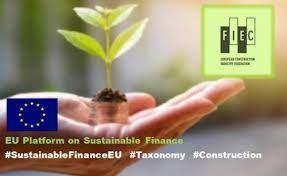Introduction
Dialogue and close cooperation among a wide range of stakeholders from the public and private sector will be crucial to deliver on the aims of the EU Taxonomy RegulationSearch for available translations of the preceding linkEN••• and ultimately of the European green dealSearch for available translations of the preceding linkEN••• and the EU climate targets for 2030 and 2050.
The Platform on Sustainable Finance plays a key role in enabling such cooperation by bringing together the best expertise on sustainability from the corporate and public sector, from industry as well as academia, civil society and the financial industry join forces.
As a permanent expert group of the European Commission that has been established under Article 20 of the Taxonomy RegulationSearch for available translations of the preceding linkEN•••, the Platform will assist the Commission in developing its sustainable finance policies, notably the further development of the EU taxonomySearch for available translations of the preceding linkEN•••.
In the following video you can watch an interview between Martin Špolc – Head of Unit Sustainable finance, Directorate General for Financial Stability, Financial Services and Capital Markets Union (DG FISMA) – and Nathan Fabian – Chair of the Platform on sustainable finance.











Add new comment